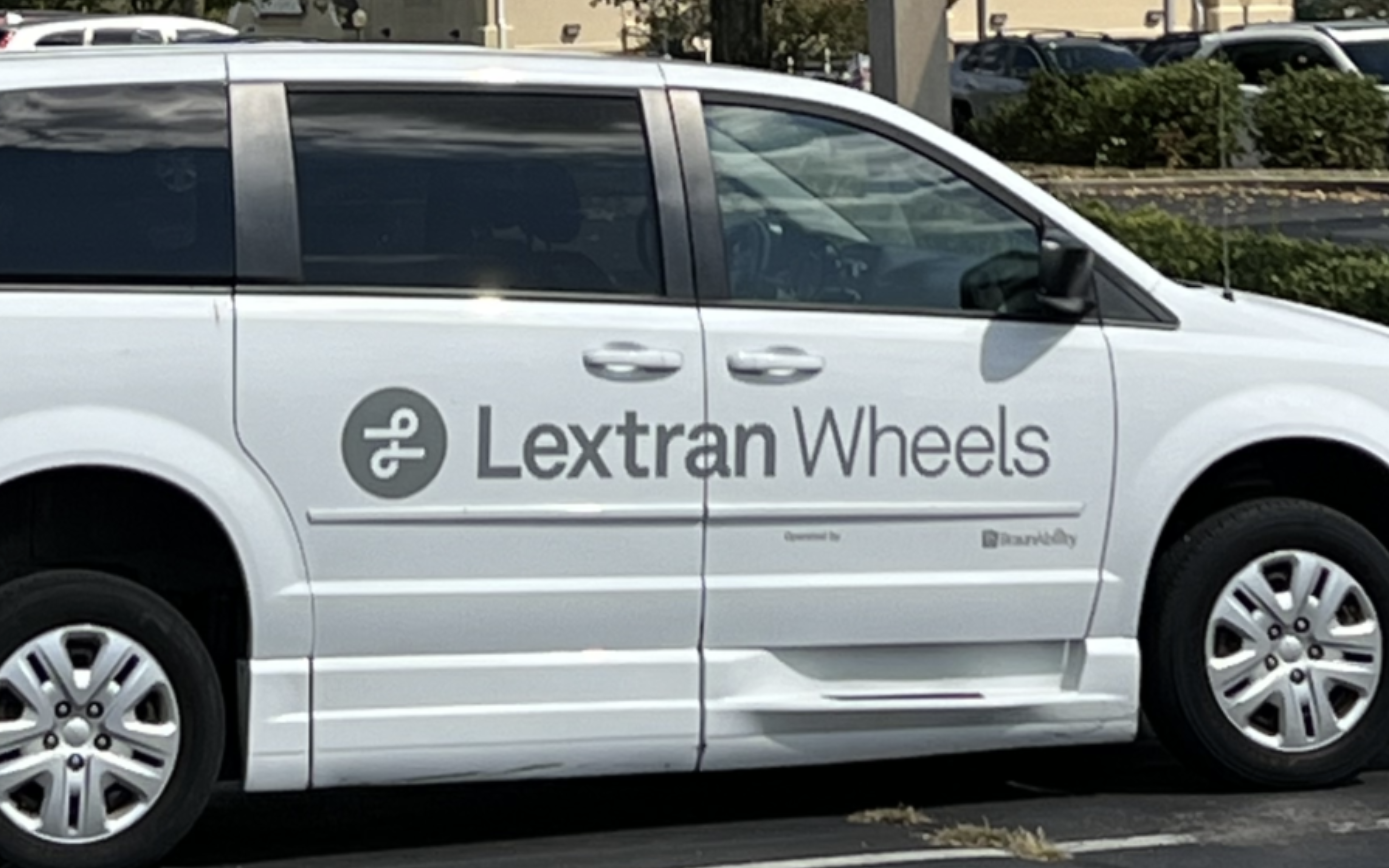Report: Lexington’s ‘Wheels’ paratransit service leaves its most vulnerable behind

LEXINGTON, Ky.–In a revealing report by Beth Musgrave for the Herald-Leader, concerns have been raised about the operational challenges faced by the Wheels paratransit program in Lexington, which is designed to assist disabled and elderly residents with transportation. Users of the service, including individuals with intellectual disabilities like Tom Newsome, have experienced significant disruptions, including long waits and complete no-shows for scheduled pickups. These issues have not only caused distress and inconvenience but have also impacted their ability to participate in beneficial activities and maintain employment.
The decline in service reliability is attributed to the transition of service provision from the Red Cross to RATP Dev in October 2022, Musgrave reports. Since the handover, RATP Dev has consistently failed to meet its operational goal of a 90% on-time rate, a shortfall that has gone without financial penalties due to contract stipulations. Despite recent amendments to the contract allowing for fines starting December, the company has yet to face any financial repercussions for these failures.
Musgrave writes that the impact of these service disruptions extends beyond individual inconvenience, affecting the broader disabled community in Lexington. For many, the Wheels service is not merely a convenience but a lifeline that enables them to access employment, education, and other critical services. The reported issues have led to job losses among clients of Bluegrass Career Services, highlighting a broader systemic failure to provide reliable, accessible transportation options for those with disabilities.
Additionally, new rules regarding the assistance drivers provide and restrictions on the number of bags passengers can carry have further exacerbated the challenges faced by users, particularly affecting those with visual impairments. The reliance on community goodwill to fill the gaps left by the service’s inadequacies underscores a pressing need for systemic improvements to ensure the program fulfills its mission to support the independence and integration of disabled individuals into the community, Musgrave reports.
As Lexington’s Wheels paratransit service struggles with reliability and operational issues, it is imperative for Lextran and RATP Dev to address these shortcomings promptly. The community depends on this essential service for independence and participation in society, underscoring the need for immediate action to restore trust and functionality to this vital program.
Microtransit effort stalls in council committee
In light of the challenges faced by Lexington’s Wheels paratransit service, the recent developments surrounding the city’s exploration of microtransit options present a potential avenue for addressing some of the critical transportation issues highlighted. The bid for funding a microtransit study, as reported by John McGary for WEKU, although stalling in committee, underscores a proactive search for innovative solutions to enhance mobility for those who find themselves underserved by traditional public transportation models.
Councilmember Chuck Ellinger’s effort to secure $400,000 for a study that could potentially unlock $1.6 million in additional funds illustrates a significant commitment to exploring alternative transportation solutions, such as microtransit. This model, which focuses on smaller, more flexible vehicles operating door to door or hub to hub, could offer a complementary service to the existing Wheels program, potentially mitigating some of the reliability and accessibility challenges currently faced by disabled and elderly residents of Lexington.
While the proposal did not advance to a vote, the presence of advocates from BUILD and the expressed interest of several council members signal an ongoing dialogue about the city’s transportation future. As Emily Elliott of LexTran voiced concerns over sustainable funding, it is clear that any long-term solution must balance innovation with financial viability.
Tying the exploration of microtransit into the broader conversation about transportation services in Lexington offers a glimmer of hope for a more inclusive and reliable system. As the city continues to study and debate the potential of microtransit, it is imperative that the voices and needs of all community members, especially those most vulnerable, remain at the forefront of these discussions. Bridging the gap between current limitations and future possibilities may well depend on the city’s willingness to embrace such innovative solutions, ensuring that no resident is left behind.
Recommended Posts

Kamala Harris needs a VP candidate. Could a governor fit the bill?
Fri, July 26, 2024
After cyber-attack on Jefferson County Clerk, Fayette counterpart discusses precautions
Fri, July 26, 2024
An eastern Kentucky animal shelter is swelling this summer
Fri, July 26, 2024